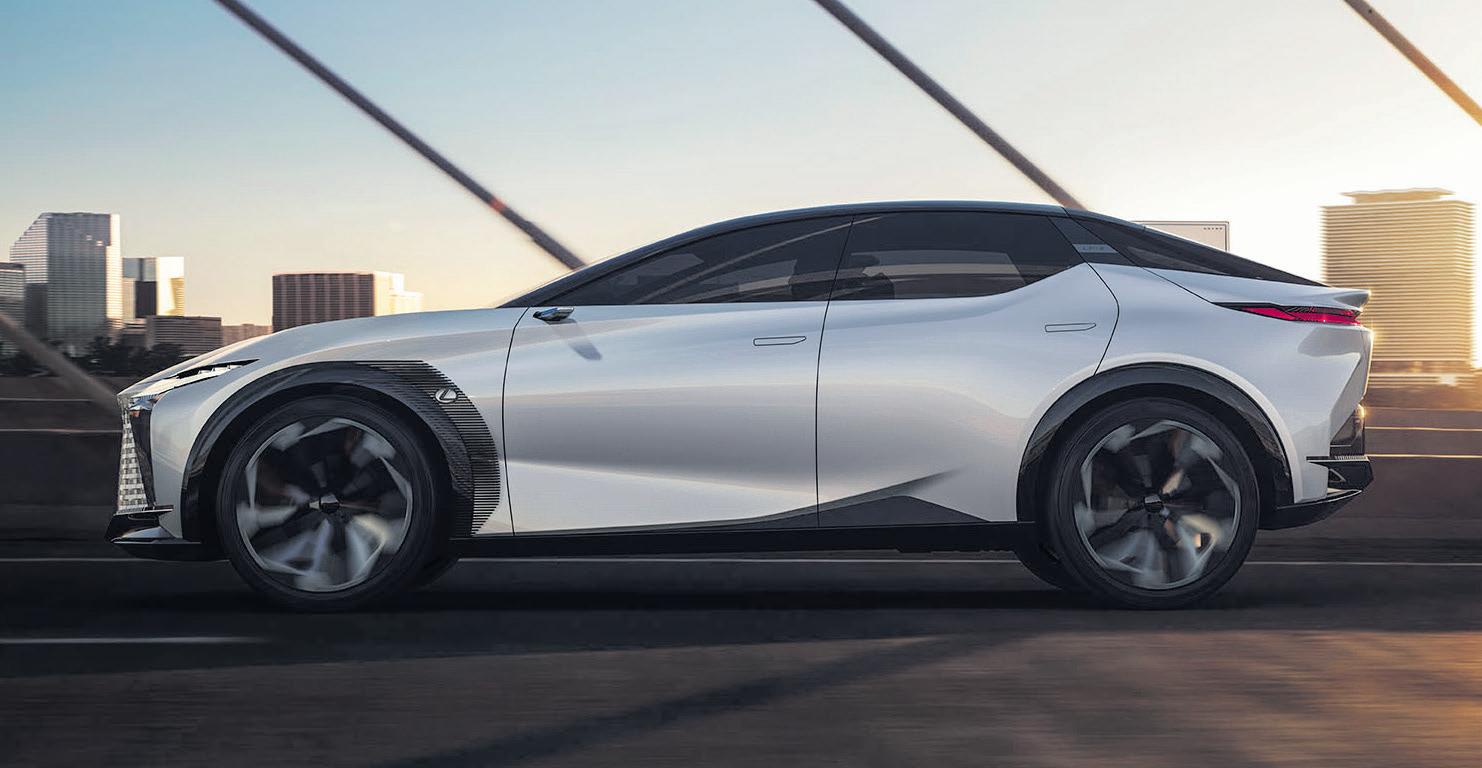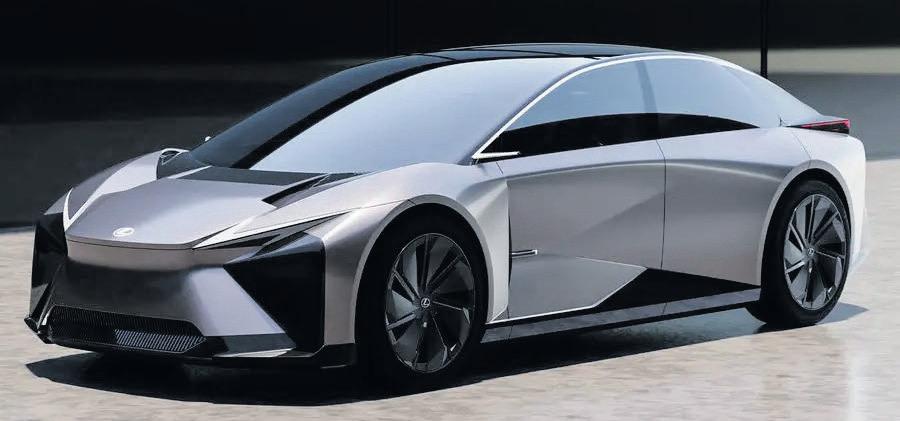
3 minute read
2026 LEXUS LF-ZC AND LF-ZL CONCEPTS: NEXT-GENERATION ELECTRIC VEHICLES PLEDGE A 900KM DRIVING RANGE
Lexus is gearing up for its upcoming electric vehicles, which will be built on a fresh modular platform featuring larger, more potent batteries.
By Jeff Gibbs
Lexus has unveiled two ground-breaking concepts at the 2023 Japan Mobility Show: the LF-ZC grand tourer and the LF-ZL luxury SUV. These concepts, according to the Japanese automaker, represent a signifcant leap forward in the electrifed driving experience and mark the next phase in Lexus’s journey towards electrifcation.
Following the introduction of the RZ, the two new models are set to utilize an entirely fresh modular platform.
The LF-ZC (Lexus Future Zero-emission Catalyst) is expected to make its debut in 2026. Lexus Chief Branding Offcer Simon Humphries has described these new vehicles as transformative, not only for Battery Electric Vehicles (BEVs) but for the very concept of what an automobile can become.

Both effciency and sustainability are at the core of these streamlined vehicles and their production process.
Lexus is minimizing parts across the entire range, employing smaller yet more effcient batteries that offer greater power and an extended range compared to the RZ.
The LF-ZC concept’s design exudes sophistication, featuring a low roofine, discreet rear doors, dramatically fared rear wheel arches, and a sharp front end. It takes the crisp lines of the RZ and elevates them to an entirely new level. Beyond its striking aesthetics, Lexus predicts that the production version of the LF-ZC, similar in size to the IS sedan, will be incredibly aerodynamic, boasting a remarkable 0.2Cd.
This, in conjunction with newly developed in-house prismatic batteries, is anticipated to grant the LF-ZC an extraordinary driving range of around
900km. This fgure is twice that of conventional BEVs, notably surpassing the RZ 450e’s 440km (WLTP) range.
While the concept may appear dramatic, its proportions closely resemble those of a production vehicle. It measures 4750mm in length, 1880mm in width, 1390mm in height, and rides on a 2890mm wheelbase. Much like the RZ 450e, the LF-ZC is likely to share key in CO2 emissions but also exemplifying the
AI technology will be integrated into the known for its automatic updates and integrated AI capabilities for voice commands. It’s not just a standalone system; it’s designed to connect seamlessly with surrounding networks, envisioning a future where the car becomes an integral part of the charging and battery storage infrastructure when not in active use. components with Toyota’s next-generation EVs, such as battery design, a modular platform comprised of three cast sections, and an evolution of the Direct4 all-wheel drive system.
Zero-emission Luxury), represents a modern-day spiritual successor to the venerable LS, tailored to cater to our current electric SUV-obsessed era. It offers a glimpse into the future of Battery Electric Vehicles (BEVs), showcasing an array of innovations aimed at enhancing the in-car experience.
The interior boasts a familiar touchpad interface, catering to the demands of a screenheavy consumer base. The digitized touchpads, reminiscent of those in the FT-Se, handle gear shifting and drive mode selection on the left, while audio, phone, and climate controls are elegantly located on the right.

Inside the cabin, weaving bamboo fbres and threads feature prominently, not only contributing to a reduction craftsmanship. New Arene software powers the Human-Machine Interface (HMI), allowing for overthe-air software updates, including those for the steer-by-wire system, which will continue to be a feature in the nextgeneration Lexus EVs, possibly incorporating the distinctive steering yoke. Additionally, software, enabling
The LF-ZL introduces a striking feature with its sliding rear doors, a design element that next-gen Lexus vehicles to learn and optimize settings for each vehicle occupant over time, thereby enhancing the driving experience.
Beyond its sophisticated tech offerings, the LF-ZL’s underlying engineering presents a signifcant leap in terms of freedom and adaptability. Employing the innovative approach of gigacasting for the front, middle, and rear sections of the vehicle’s platform, Lexus seeks to optimize production processes. Furthermore, the implementation of driver aids, including low-speed adaptive cruise control and autonomy, can be activated during the assembly process, provided that the battery, motor, tires, and wireless terminal components are installed. This allows the vehicle to autonomously navigate the production line without the need for conveyors, revolutionizing manufacturing effciency.
The Lexus LF-ZL: A Luxury Electric SUV in the LS Line-up Lexus’s forthcoming electric fagship, the LF-ZL (Lexus Future maximizes accessibility and adds a touch of futuristic luxury. Inside, it hosts individual bucket seats and an array of expansive internal screens, providing a tantalizing preview of what future electric vehicles will offer to their occupants. This electric marvel is underpinned by the Arene operating system,
Although Lexus has not offcially disclosed a release date for the LF-ZL, it is expected to serve as a precursor to a high-end production model that mirrors the size of a Range Rover.
The full-size SUV concept stretches out to 5300mm in length, spans 2020mm in width, stands at a height of 1700mm, and sits atop a substantial 3350mm wheelbase.










